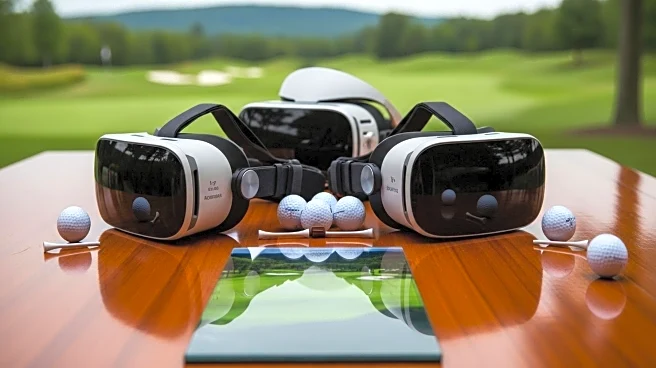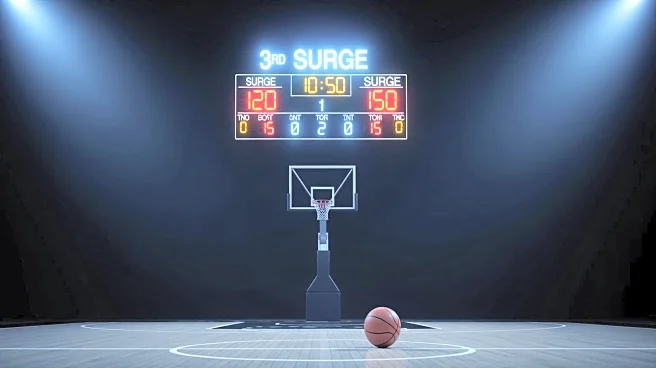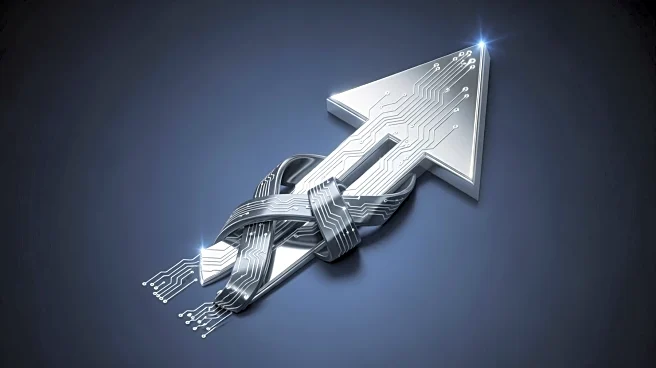What's Happening?
The European Ryder Cup team, led by captain Luke Donald, is employing virtual reality headsets as a training tool to simulate the potentially hostile environment they will face at Bethpage. Rory McIlroy, a key player on the team, revealed that the VR headsets are programmed to shout abuse at players, aiming to desensitize them to the intense atmosphere expected during the competition. This innovative approach is part of the team's strategy to prepare for the challenges of playing on American soil, where they have not won since 2012. McIlroy emphasized the importance of mental preparation, noting that while VR can help simulate the experience, nothing can fully prepare the team until they face the real conditions on the course.
Why It's Important?
The use of VR technology by the European Ryder Cup team highlights the increasing role of technology in sports training and preparation. This approach could set a precedent for other teams and sports, showcasing how virtual reality can be used to mentally prepare athletes for high-pressure situations. The Ryder Cup is a significant event in the golfing world, and the European team's innovative strategy may influence future training methods. Additionally, the team's preparation underscores the competitive nature of international sports events, where psychological readiness is as crucial as physical skill. The outcome of this strategy could impact the team's performance and potentially alter the dynamics of the competition.
What's Next?
The European team will continue their preparations with a scouting trip to Bethpage, allowing them to familiarize themselves with the course and conditions. As the competition approaches, the effectiveness of the VR training will be tested in real-time, providing insights into its impact on player performance. The Ryder Cup will serve as a platform to evaluate the success of this unconventional training method, potentially influencing future strategies in sports psychology and preparation. Stakeholders, including coaches and sports psychologists, will be keenly observing the results to assess the viability of VR technology in competitive sports.
Beyond the Headlines
The use of VR headsets to simulate hostile environments raises questions about the ethical implications of such training methods. While it aims to prepare athletes for real-world challenges, it also involves exposing them to verbal abuse, which could have psychological effects. This approach may spark discussions on the balance between mental toughness and the potential negative impact of simulated hostility. Furthermore, the integration of technology in sports training could lead to broader debates on the role of tech in enhancing or altering traditional training practices.









